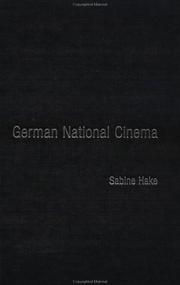| Listing 1 - 2 of 2 |
Sort by
|
Book
ISBN: 9789490334345 Year: 2022 Publisher: Amsterdam Octavo
Abstract | Keywords | Export | Availability | Bookmark
 Loading...
Loading...Choose an application
- Reference Manager
- EndNote
- RefWorks (Direct export to RefWorks)
In De goddelijke komedie van Dante verspreidt het grote licht zich in sublieme cirkels in het Paradijs en dwalen de kleine vuurvliegjes in de Hel. De jonge Pier Paolo Pasolini las dit werk secuur. Op een nachtelijke wandeling met vrienden ziet hij plotseling een zwerm vuurvliegjes. Het is 1941. In het duister van de nacht en tegen de achtergrond van het fascisme van Mussolini tekenen zij zich af als vluchtige lichtjes van onschuld en liefde. Ze staan in schril contrast met de schijnwerpers van de propaganda die de fascistische dictator in een verblindend licht hullen. Dantes universum in omgekeerde vorm. Pasolini heeft vaak herhaald dat de ‘dans van de vuurvliegjes’, dat moment van gratie dat weerstand biedt aan een wereld vol terreur, het meest broze is wat er bestaat. Aan het eind van zijn leven meende hij dat de vuurvliegjes waren verdwenen. Maar volgens Didi-Huberman leven ze ‘ondanks alles’ voort: tegenover macht staan nog altijd verzet en hoop. Didi-Huberman laat in zijn beeldende schrijfstijl de vuurvliegjes oplichten in actuele voorbeelden van verzet. En daarbij speelt het werk van de filosofen Walter Benjamin en Giorgio Agamben en de kunsthistoricus Aby Warburg een belangrijke rol.
Protest --- politiek --- filosofie --- kunstfilosofie --- cultuurfilosofie --- Tweede Wereldoorlog (WO II) --- fascisme --- oorlogen --- Agamben, Giorgio --- Benjamin, Walter --- Warburg Aby --- Pasolini, Pier Paolo --- protest --- 700.6 --- film --- filmtheorie --- filmgeschiedenis --- 798.3 --- klimaatverandering --- televisie --- kunsttheorie --- wereldoorlog II --- 7.01 --- 791.41 --- beeldende kunst, filosofie, esthetiek en kritiek der beeldende kunst --- film, esthetiek en kritiek --- Political philosophy. Social philosophy --- Warburg, Aby --- philosophy

ISBN: 0415089026 9780415089029 Year: 2002 Publisher: London Routledge
Abstract | Keywords | Export | Availability | Bookmark
 Loading...
Loading...Choose an application
- Reference Manager
- EndNote
- RefWorks (Direct export to RefWorks)
"German National Cinema is the first comprehensive history of German film from its origins to the present. From The Cabinet of Dr Caligari to Run Lola Run, Sabine Hake examines a range of films in relation to the economic, political, social and technological events surrounding them. Hake assesses the work of directors such as Fritz Lang and Rainer Werner Fassbinder, and stars like Marlene Dietrich and Louise Brooks. From the Wilhelmine Empire to post reunification, she traces the artistic currents, technological innovations, and social transformations which defined each era of German film and shows how a highly politicised cinema often produced surprisingly apolitical films. Embracing popular traditions and other cultural legacies such as music, literature and prominent art movements like Expresssionism, she explores the competing definitions of German cinema as art cinema, quality entertainment, political propaganda and rival of Hollywood."
791.43 --- Motion pictures --- -Motion picture industry --- -#SBIB:033.AANKOOP --- #SBIB:309H1320 --- Film industry (Motion pictures) --- Moving-picture industry --- Cultural industries --- Cinema --- Feature films --- Films --- Movies --- Moving-pictures --- Audio-visual materials --- Mass media --- Performing arts --- 791.43 Filmkunst. Films. Cinema --- Filmkunst. Films. Cinema --- History --- De filmische boodschap: algemene werken (met inbegrip van algemeen filmhistorische werken en filmhistorische werken per land) --- History and criticism --- Motion picture industry --- #SBIB:033.AANKOOP --- 798.43 --- filmgeschiedenis --- Duitsland --- expressionisme --- film --- Tweede Wereldoorlog (WO II) --- Nouvelle Vague --- Neuer Deutscher Film --- Weimar --- DDR --- Bondsrepubliek Duitsland (BRD) --- film, geschiedenis der filmkunst, overige landen
| Listing 1 - 2 of 2 |
Sort by
|

 Search
Search Feedback
Feedback About UniCat
About UniCat  Help
Help News
News